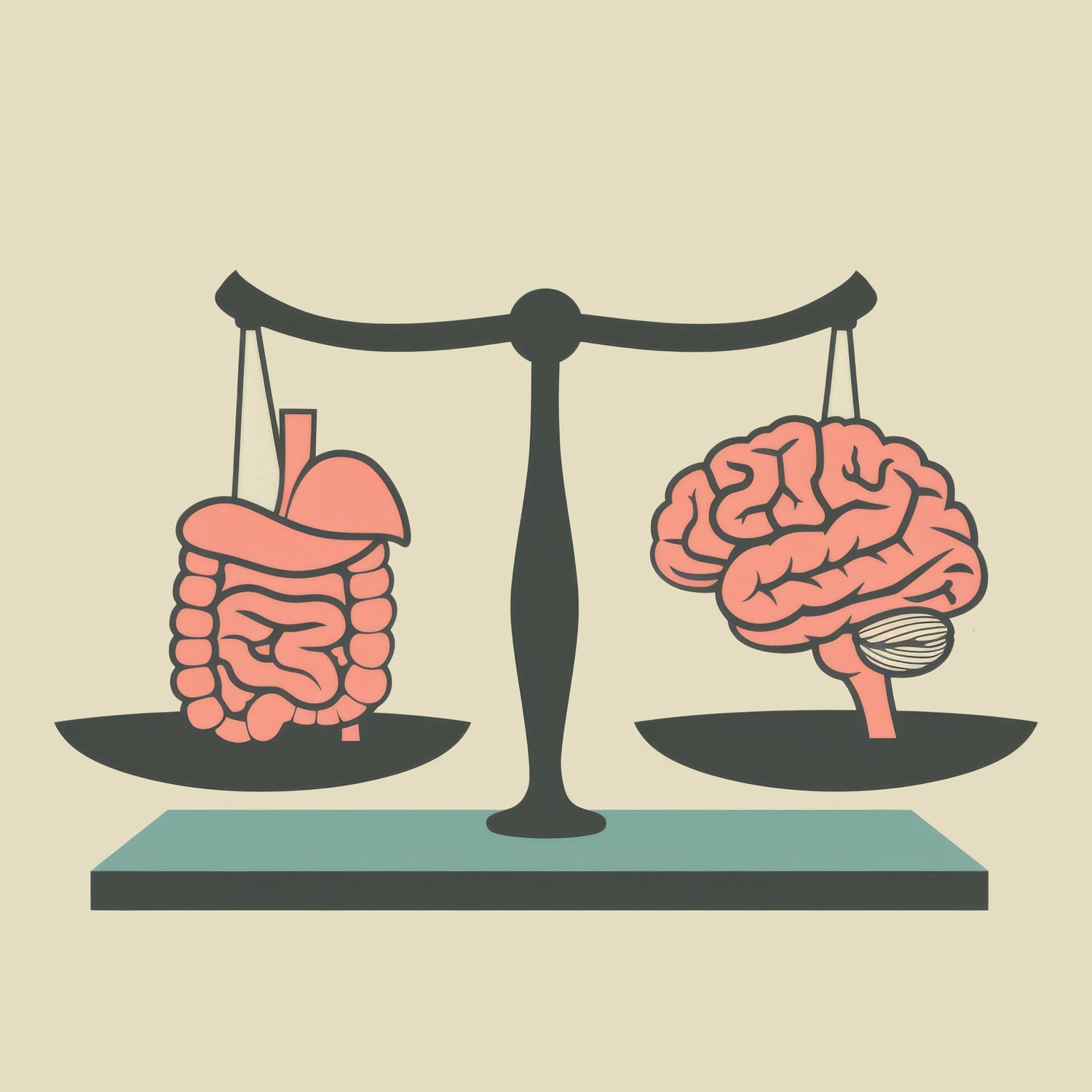When people think of mental health, they often consider factors like genetics, environment, and lifestyle. However, one crucial element that’s often overlooked is the health of your gut. Emerging research has revealed a strong connection between the gut and the brain, known as the gut-brain axis. This bidirectional communication system means that your gut health can directly impact your mood, cognition, and overall mental health. In this post, we’ll explore how the gut microbiome and conditions like leaky gut contribute to mental well-being.
Understanding the Gut-Brain Axis
The gut-brain axis is a complex network that links the gut and brain through multiple pathways, including the vagus nerve, the immune system, and the hormonal system. This relationship is not one-sided; just as the brain can influence gut function (think of “butterflies” in your stomach when you’re nervous), the gut can send signals to the brain that affect mood and behaviour.
One of the key players in this communication is the gut microbiome—the trillions of bacteria, fungi, and other microbes living in the digestive tract. These microbes produce neurotransmitters like serotonin, often called the "feel-good" hormone, as well as gamma-aminobutyric acid (GABA), which plays a role in calming the brain. In fact, an estimated 90% of serotonin is produced in the gut, not the brain.
The Role of the Gut Microbiome in Mental Health
A healthy and diverse gut microbiome is essential for mental health. Research has shown that an imbalance in gut bacteria, or dysbiosis, is linked to several mental health conditions, including anxiety, depression, and even neurodevelopmental disorders such as autism. A strong gut microbiome helps regulate the production of neurotransmitters and reduces inflammation, both of which are crucial for brain health.
One notable study found that people with depression often have a less diverse gut microbiome compared to healthy individuals. They also showed higher levels of pro-inflammatory cytokines, which are associated with both gut and brain inflammation. This suggests that supporting the gut microbiome could be a promising avenue for improving mental health.
Leaky Gut and Its Impact on the Brain
Another factor that can negatively affect the gut-brain axis is leaky gut. The gut lining acts as a barrier, preventing harmful substances from entering the bloodstream. However, when the gut becomes "leaky," these substances, such as toxins and undigested food particles, can pass through the intestinal wall and trigger an immune response.
Leaky gut has been linked to increased systemic inflammation and a higher risk of mental health issues like depression and brain fog. Chronic inflammation disrupts the production of essential neurotransmitters and can contribute to mood imbalances.
Strengthening the Gut for Better Mental Health
Given the importance of the gut microbiome in maintaining mental health, it’s vital to adopt strategies that support gut health:
- Eat a Fibre-Rich Diet: Fibre feeds beneficial bacteria, promoting a more diverse and robust microbiome. Boosting your fibre intake with a supplement like Daily Healthy Fibre can provide the necessary support for optimal gut health.
- Include Probiotic and Prebiotic Foods: Probiotics, found in yogurt and fermented foods, and prebiotics, such as onions and garlic, nourish the gut microbiome.
- Repair the Gut Lining: Supplements like REZCUE, which combine Zinc Carnosine and L-Glutamine, help to strengthen the gut lining and reduce inflammation. REZCUE has been shown to be highly effective against leaky gut.
- Avoid Gut Irritants: Reduce intake of processed foods, sugar, and alcohol, which can disrupt the gut lining and promote inflammation.
By focusing on gut health, you’re not just supporting your digestive system—you’re investing in your mental health, too. The next time you’re feeling anxious or low, consider what’s happening in your gut and whether it might need a little extra care.




















